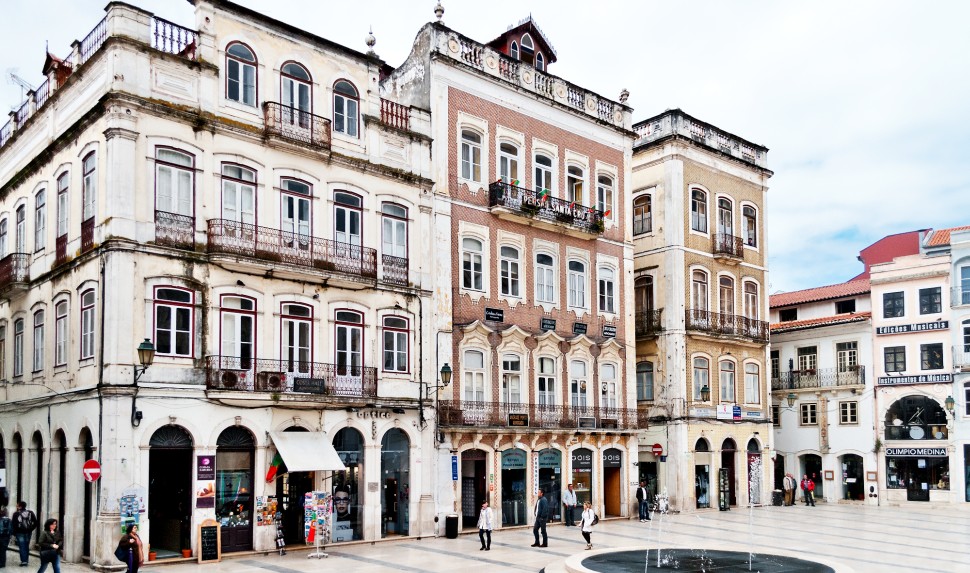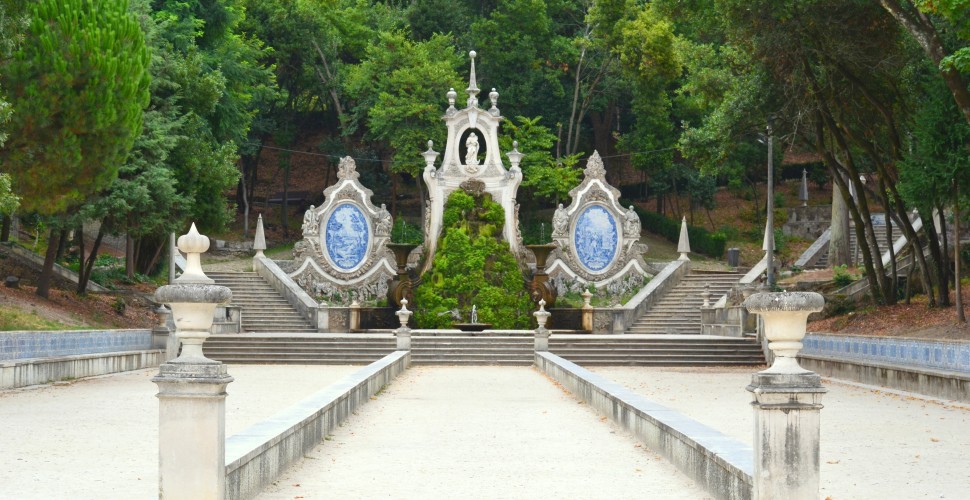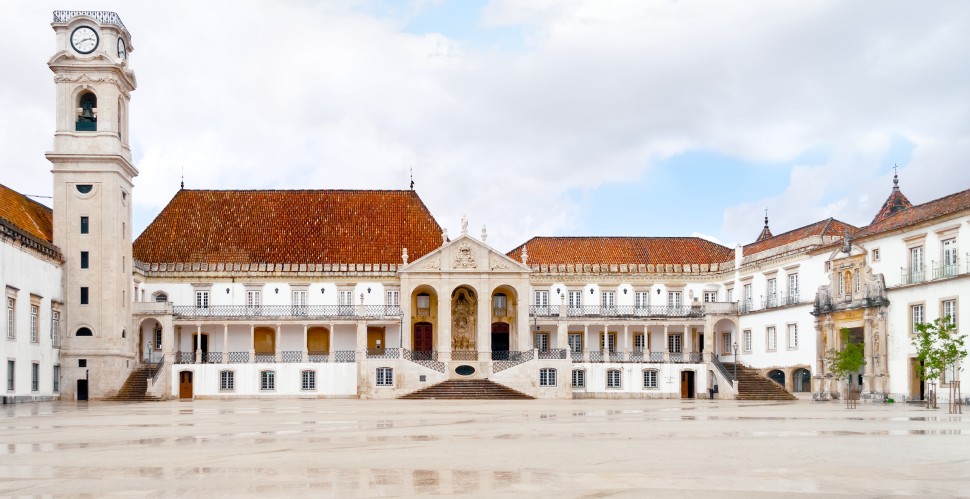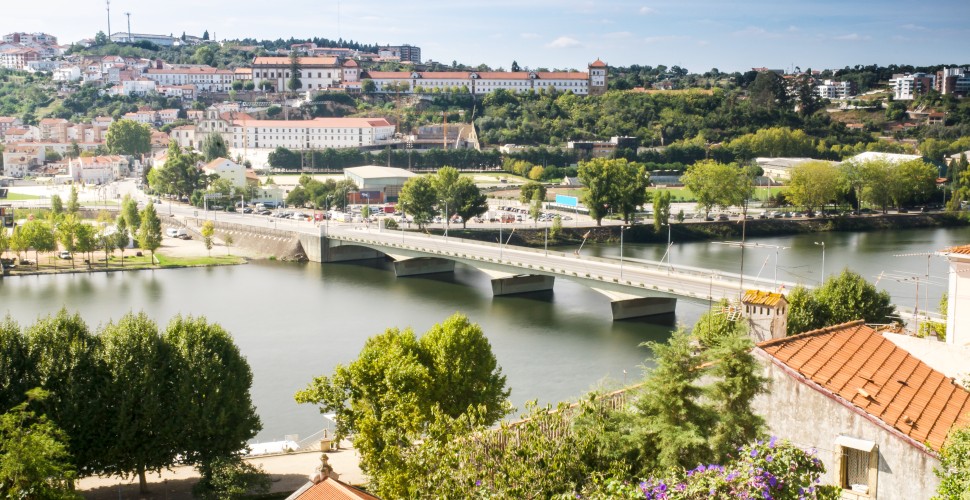Portugal by Inter-Rail: Coimbra – The Third City
In some regards, there were aspects of Portugal that were a little undeveloped. But this couldn't be said of the trains – or at least, not the train I caught from Porto.
It was as modern as anything in the UK, with quiet carriages and comfortable seats. It was so good, in fact, that I wondered if I had got on the wrong class of train, so I clutched my Inter-Rail ticket with some trepidation as the inspector came round.
I was pleased when he examined the ticket with a smile: this Inter-Railing thing really did work!
Coimbra
A few hours later I was in Portugal's third city, after Porto and the capital, Lisbon. Coimbra was much smaller than those cities, with around 160,000 inhabitants.
 Coimbra, Portugal (Petit Group/Bigstock.com)
Coimbra, Portugal (Petit Group/Bigstock.com)
My pre-booked accommodation was a short distance from the train station – an aging but comfortable establishment that was smaller and cosier than the one in Porto. A friendly old couple ran it and were excited to have an Englishman staying; perhaps it was usually frequented by locals.
Hungry after my journey, I found small restaurant for lunch. There weren't a lot of vegetarian options – this being a decidedly meat-loving nation – but the semi English-speaking waitress suggested a ‘green tomato pie'. It was delicious. I washed it down with some strong black Portuguese coffee. I was beginning to see that you could enjoy excellent coffee everywhere in this country.
After lunch I explored the city's wonderful botanical gardens and enjoyed the Portuguese sunshine for a while.
 Mermaid Garden, Coimbra, Portugal
Mermaid Garden, Coimbra, Portugal
My guidebook said that the University of Coimbra was a must-see, inside which was the famous old Joanine library. Both were very close to the gardens, so I decided to explore them.
Built in the 13th century, the university is one of the oldest continuously functioning learning institutions in the world, and last year received coveted UNESCO World Heritage status. I could see why, as I wandered across the sunny square in front of the beautiful old main building, overlooked by an imposing old bell tower.
 University of Coimbra, Portugal (Petit Group/Bigstock.com)
University of Coimbra, Portugal (Petit Group/Bigstock.com)
I eventually found the Joanine library, which seemed more like a cathedral with books than a library. It was something that might have featured in a Harry Potter film, such was the sense of magic inside. Built in the 18th century, this baroque masterpiece dazzled me with its gilded features and painted ceilings. Seeing the ladders reaching up to the high book shelves made me feel dizzy; there would be no vertigo sufferers among these librarians!
The powerful Portuguese sun was throwing shadows across the university buildings when I emerged from the enchanting library. Music drifted across the square, and I decided to find out where it was coming from. The music, which featured strings and a male voice, emanated from a stony hallway halfway down which was an open door. I could see some kind of performance was going on inside. I stood and listened outside for a while. It was a beautiful and atmospheric sound to hear in such a place. After some research a few days later, I discovered this was probably 'fado' music, a traditional centuries-old Portuguese guitar-based sound.
It was getting dark and I was getting hungry again. I made my way down to the Mondego River, where the lights of the city were reflected stunningly in the slow moving waters. I soon found a riverside restaurant that offered an impressive range of dishes, including some meat-free. The waiter told me all the ingredients were locally sourced, and, after exhibiting some regret that I couldn't sample the roasted suckling pig or the fried pork with clams, suggested a kind of vegetable hot pot. This was very good and was made even better by some excellent Portuguese red wine.
 Mondego River, Coimbra, Portugal
Mondego River, Coimbra, Portugal
As I made my way back to my guest house under a crescent moon, I pondered on how important food was to the Portuguese. True, a lot of the meals were meat-based, which made life as a vegetarian a little more challenging – but they really cherished fresh, high quality produce, and the simple pleasure of eating.
I wondered what other culinary and cultural treats awaited me in my next stop: the sprawling capital, Lisbon.
Get a Quote